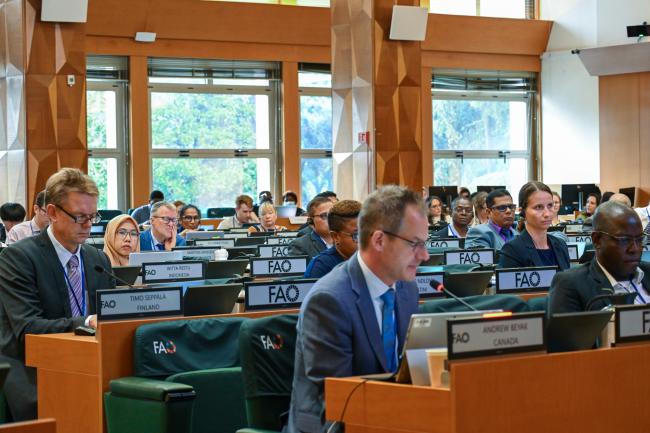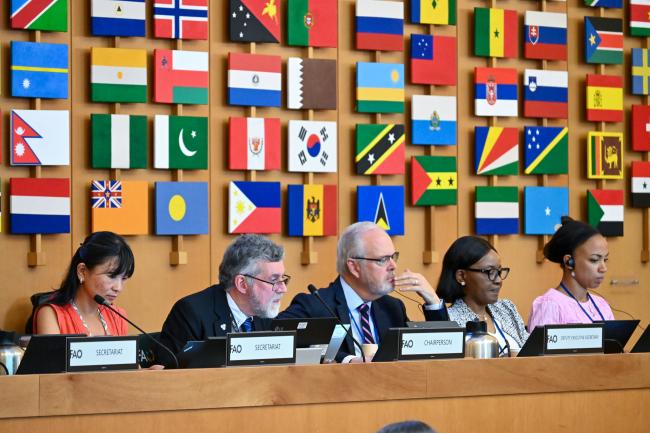“POPs” is an innocent-sounding acronym for a troubling group of chemicals. Persistent organic pollutants (POPs) are toxic, long-lasting, and bioaccumulate. They can travel through air and water, exposing people living far from where the chemical was used or produced.
The Persistent Organic Pollutants Review Committee (POPRC) works to identify these POPs and recommend how to handle them. It provides recommendations that can lead to eliminating or restricting a POP’s production and use. POPRC can suggest time-limited exemptions to allow a specific use of a POP. A case-by-case review is often vital given the unique characteristics and uses of various POPs.
It is this risk management role that also requires POPRC to consider harsh trade-offs. Debating chlorpyrifos, POPRC members found themselves weighing the need to protect people from the POP, but also ensuring food security. It is a pesticide that is widely produced and used in agriculture, from protecting key crops such as rice and maize to herds, including cattle. As some observers noted, it also harms brain development in children and has been found in the Arctic, where it is not used. Nearly 50 countries have banned chlorpyrifos. Some members and observers said there are available and effective alternatives, and, therefore, no exemptions are needed. Several experts from developing countries questioned if these alternatives would be readily available and affordable in their countries.
Managing risks also requires working with industry, government, and other stakeholders. For complex groups of chemicals, various stakeholders may identify them differently. Medium-chain chlorinated paraffins (MCCPs) could include hundreds of chemicals. Industry identifies this group based on their chlorination levels. Others preferred the precision of using the congeners typical of this group. As these chemicals are produced by industry and employed by a wide range of downstream users, POPRC members will continue to debate what is clear for all to understand and feasible for all countries to enforce.
To receive free coverage of global environmental events delivered to your inbox, subscribe to the ENB Update newsletter.





